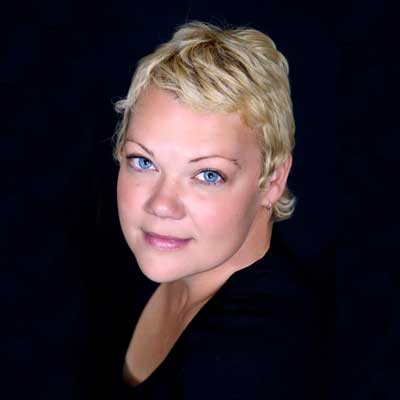PhD Alum and SIS Lecturer Crystal Sherline Explores Usability, Digital Preservation
 Crystal Sherline didn’t think she wanted to get a PhD; she was working as a library director of a small, rural library, and had already been through the rigorous PhD experience with a spouse.
Crystal Sherline didn’t think she wanted to get a PhD; she was working as a library director of a small, rural library, and had already been through the rigorous PhD experience with a spouse.
“I had a couple of patrons I was very close to, who were older and worldly. They told me, ‘You need to go do a PhD.’ I contemplated for a couple of years, but I’m a lifetime learner,” Sherline said.
She earned her doctoral degree from the University of Tennessee, Knoxville, College of Communications and Information, with an emphasis in information sciences. After she graduated in 2014, she didn’t pursue any more librarianship, but rather worked for the Homeland Defense Information Analysis Center doing heavy statistics-based analysis.
Currently, she works at the Department of Energy in the Office of Scientific and Technical Information. She heads up data acquisitions, which means she gets researchers, universities, federal agencies and national laboratories to submit metadata for their scientific research in order to get a persistent identifier – a digital object identifier (DOI).
“You know how books have ISSN numbers? It’s like giving research a Social Security number, in a sense. It’s a way to always have something persistent, that never goes away, for electronic documents,” she explained. “It’s always resolvable, so if you click on a DOI, it’s part of a citation now.”
She works a lot with developers to make searching and record-keeping easier for users, to ensure they can easily submit and access what they need. She hasn’t been able to do as much research recently as she would like, but when she does, she conducts usability studies doing testing with researchers on utilities and functionalities that work best for them.
Sherline’s earlier education and career were all building blocks for her to do what she does today: a mix of science, writing and libraries. She earned an undergraduate degree in biology, and also has a master’s in English and Technical writing. She lived in Berlin at one point and did freelance science writing and loved it. When she was back in the United States, she volunteered in libraries and decided to pursue a master’s of science in library science at Florida State University.
A move to Oak Ridge, Tennessee, helped facilitate her preferred career in the math and science field, as well as her PhD. She worked for three years in Oak Ridge before deciding to pursue her PhD at UT – she said she wouldn’t have gone through with getting a doctoral degree if she hadn’t been accepted into the UT program.
“Generally, you don’t need a PhD unless you’re going to do research or be a professor; I don’t mind the research, but I didn’t see myself in an academic setting. Out the gate, I was honest and up front about that and [the faculty] said, no, there’s lots of avenues,” Sherline said.
When she started the program, Sherline would discuss her interests with Chancellor’s Professor Suzie Allard and they would figure out how Sherline could pursue those interests. She wanted to study behavior in usage, decisions and persuasion making, so she took a lot of psychology and statistic classes, which she then applied back to theory and information.
“I think the program is amazing…One of the things I really enjoyed was that there was so much flexibility in my program. I really enjoyed being able to decide, and no be told what I have to do. There were parameters, but I got to decide,” she said.
Now, Sherline is a lecturer for the UT School of Information Sciences and has taught: Information Access and Retrieval; Environmental Informatics; Introduction to Web Technologies; Information Seeking: Resources and Strategies and Information Management in Organizations. She said she’s glad she went ahead and earned her PhD.
“It felt great to be finished, but it also felt like there’s nothing I can’t do,” she said.